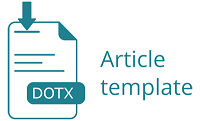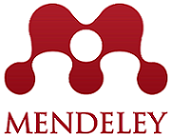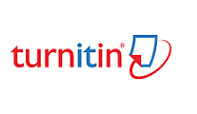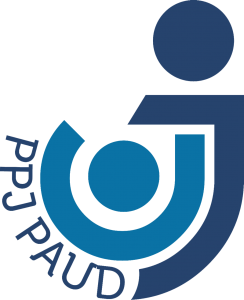- Focus and Scope
- Section Policies
- Peer Review Process
- Publication Frequency
- Open Access Policy
- Archiving
- Focus and Scope
- Peer Review Process
- AIMS
- Plagiarism Screening
- ISSN
- Author Waiver Policy
- Publishing Ethics
- Fees
- Licence
- Index
Focus and Scope
Edukids: Journal of Growth, Development and Early Childhood Education is a scientific journal of early childhood education Teacher Education Study Program for Early Childhood Education at the Indonesian University of Education, which contains research articles processed through blind peer reviewed. The Edukids Journal receives articles on child education, child development, curriculum and learning, science and technology for children, policies related to children, teacher education for early childhood, parenting, science and technology for children, and other fields that are related to early childhood. The Edukids Journal can accommodate researchers, lecturers, observers of children's education, students, practitioners in the field of early childhood education to publicize their work widely.
Section Policies
Articles
Peer Review Process
The script review process in the Edukids Journal is carried out through a peer-review mechanism and double blind review. The paper will be reviewed by a review team consisting of four external reviewers and two internal reviewers. The reviewer team will provide a recommendation whether the article can be published or not. If necessary, the review team will ask the author to revise the article to meet Edukids Journal writing standards. Recommendations from reviewers are recorded in the review form.
Publication Frequency
Edukids Journal is published three times a year in the following month:
1. April
2. August
Within one year, edukids published 12 articles.
Open Access Policy
This journal provides open access which, in principle, makes research freely available to the public and will support the largest global exchange of knowledge.
Archiving
This journal uses the LOCKSS system to create a distributed filing system among participating libraries and allows the library to create permanent journal records for the purpose of preservation and restoration.
Focus and Scope
The Edukids Journal is a scientific journal of early childhood education in the Early Child Education Teacher Education Study Program, Universitas Pendidikan Indonesia, which is published twice a year, in April and August. This journal contains research articles that are processed through blind peer reviewed. Journal of Edukids receives articles on child education, child development, curriculum and learning, science and technology for children, policies related to children, teacher education for early childhood, parenting, science and technology for children , and other fields related to early childhood. The Edukids Journal can accommodate researchers, lecturers, observers of children's education, students, practitioners in the field of early childhood education to publicize their work widely.
Peer Review Process
The script review process in the Edukids Journal is carried out through a peer-review mechanism. The paper will be reviewed by a review team consisting of two external reviewers and two internal reviewers. The reviewer team will provide a recommendation whether the article can be published or not. If necessary, the review team will ask the author to revise the article to meet Edutech Journal writing standards. Recommendations from reviewers are recorded in the review form.
AIMS
Edukids Journal aims to facilitate the dissemination of research on issues related to early childhood education to solve problems in education and learning
Contributions are expected from senior researchers, project managers, research administrators and PhD students at advanced stages of their research, representing both public organizations and private industry. Equally, the journal if intended for scholars and students, reseachers working at research organizations and government agencies, and also for enterprises undertaking applied R&D to lead innovations.
The editorial contents and elements that comprise the journal include:
- Theoretical articles
- Empirical studies
- Practice-oriented papers
- Case studies
- Review of papers, books, and resources.
As far as the criteria for evaluating and accepting submissions is concerned, a rigorous review process will be used. Submitted papers will, prior to the formal review, be screened so as to ensure their suitability and adequacy to the journal. In addition, an initial quality control will be performed, so as to ensure matters such as language, style of references and others, comply with the journal´s style.
Plagiarism Screening
Before reviewing the process, all texts will be examined whether they are free from the practice of plagiarism using "Turnitin" software. If there is an indication of plagiarism, the text will be immediately rejected.
ISSN
Journal ISSN (print version) : 1693-5284
Journal E-ISSN : 2685-6409
Author Waiver Policy
Edukids provide freedom to receive writers from abroad.
Publishing Ethics
Researchers must conduct their research from research proposals to publications in accordance with best practices and the ethical codes of the relevant professional bodies and / or national and international regulatory bodies. In rare cases, it is possible that ethical problems or errors can be found in your journal when the research is submitted for publication.
This journal is committed to upholding the integrity of scientific records. As a member of the Committee on Publication Ethics (COPE), the journal will follow COPE guidelines on how to deal with potential violations.
Authors must refrain from misinterpreting the results of research that can damage trust in journals, professionalism in scientific writing, and ultimately all scientific endeavors. Maintaining the integrity of research and its presentation is assisted by following the rules of good scientific practice, which include *:
1. Manuscripts should not be submitted to more than one journal for simultaneous consideration.
A single study should not be divided into sections to increase the number of submissions and submit it to various journals or to one journal from time to time (eg alami Salami-slicing / publishing ’).
2. Concurrent or secondary publications can sometimes be justified, provided certain requirements are met. Examples include: translations or texts intended for different groups of readers.
3. Results must be presented clearly, honestly, and without fabrication, falsification, or inappropriate data manipulation (including image-based manipulation). Authors must adhere to specific disciplinary rules for obtaining, selecting, and processing data.
4. No data, texts, or theories by other people are presented as if they belonged to the author himself ('plagiarism'). Appropriate acknowledgments to other works must be given (this includes material that is closely copied (near word for word), summarized and / or paraphrased), quotation marks (to show words taken from other sources) used to copy material verbatim, and permission is guaranteed for copyrighted material.
Important note: journals can use software to filter plagiarism.
1. Authors must ensure they have permission to use the software, questionnaire / survey (web) and scale in their studies (if appropriate).
2. Authors must avoid untrue statements about an entity (which can be an individual or company) or a description of their behavior or actions that could potentially be seen as personal attacks or accusations about that person.
3. Research that might be misused to pose a threat to public health or national security must be clearly identified in the text (eg dual use of research). Examples include the creation of dangerous consequences from biological agents or poisons, impaired vaccine immunity, unusual hazards in the use of chemicals, research / technology weapons (among others).
4. Authors are strongly advised to ensure the author group, Corresponding Author, and author order are all correct at the time of submission. Adding and / or removing authors during the revision stage is generally not permitted, but in some cases it can be justified. The reasons for authorship changes must be explained in detail. Please note that authorship changes cannot be made after receiving a text. [See also Essay Principles.]
* All of the above are guidelines and authors need to ensure to respect the rights of third parties such as copyright and / or moral rights.
Upon request, the author must be prepared to send relevant documentation or data to verify the validity of the results presented. This can be in the form of raw data, samples, notes, etc. Sensitive information in the form of confidential or proprietary data is not included.
If there is a suspicion of misconduct or suspected fraud, the Journal and / or Publisher will conduct an investigation following the COPE guidelines. If, after investigation, there is a valid concern, the author concerned will be contacted under the email address provided and given the opportunity to resolve the issue. Depending on the situation, this may result in the application of the following steps from the Journal and / Publisher, including, but not limited to:
If the manuscript is still under consideration, it might be rejected and returned to the author.
If the article has been published online, depending on the nature and severity of the violation:
erratum / correction can be placed with the article
expressions of concern can be placed with the article
or in severe cases article repeal can occur.
The reason will be given in the erratum / correction, statement of concern or published retraction note. Please note that revocation means that the article is maintained on the platform
Fees
This journal charges the following author fees.
Article Submission: 0.00 (IDR)
Authors are required to pay an Article Submission Fee as part of the submission process to contribute to review costs.
Fast-Track Review: 500.00 (IDR)
With the payment of this fee, the review, editorial decision, and author notification on this manuscript is guaranteed to take place within 4 weeks.
Article Publication: 200.00 (IDR)
If this paper is accepted for publication, you will be asked to pay an Article Publication Fee to cover publications costs.
If you do not have funds to pay such fees, you will have an opportunity to waive each fee. We do not want fees to prevent the publication of worthy work.
Licence
Edukids This work is licensed under a Creative Commons Attribution-ShareAlike 4.0 International License.















.jpg)









1.jpg)


